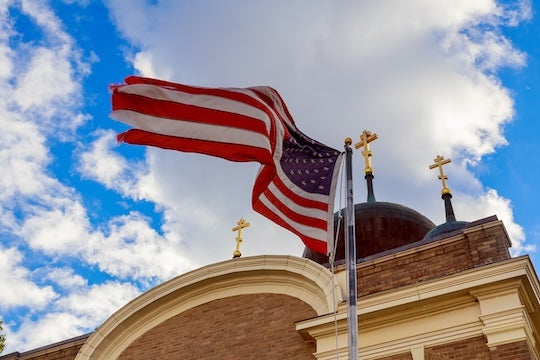A new study from Rice University sheds light on the complex moral foundations of Christian nationalism (CN), showing that understanding the different intuitions behind it can help us better grasp its political and social impact.
Kerby Goff, associate director of research at Rice’s Boniuk Institute for the Study and Advancement of Religious Tolerance, explains, “Christian nationalism is the belief that America was founded as a Christian nation and has a special obligation to uphold Christian identity and practices. It’s a cultural narrative that defines national identity using religious symbols, rhetoric and myths, essentially politicizing religion and ‘religionizing’ politics.”

The study, published in the journal Sociology of Religion and co-authored with Pennsylvania State University researchers Eric Silver and John Iceland, sought to answer why CN resonates with some Americans but not others. The researchers found that support for CN is strongly tied to in-group loyalty and sanctity — moral concerns about preserving traditional values. Goff notes that the controversy over Christianity’s role in politics often comes down to these fundamental moral disagreements.
“Understanding Christian nationalism’s moral foundations is crucial for addressing debates about its role in American society and politics,” Goff said. “It’s not just about authoritarianism; it’s about deeper moral tensions between communal loyalty and individual fairness.”
The study suggests that CN’s appeal isn’t merely about authoritarianism or racial prejudice but rather about a desire for social order based on loyalty and sanctity. For example, CN supporters often oppose state-imposed policies like vaccine mandates, viewing them as violations of their moral values. Goff also points out that concerns about personal liberty and religious freedom lead people to support CN ideas. During the COVID-19 pandemic, CN was linked to support for lifting social distancing restrictions with arguments centered on “saving the economy” and the right to “work and travel freely.”
Understanding the moral foundations of CN — especially loyalty, sanctity and liberty — can offer important insights into its appeal to many Americans, Goff said.

